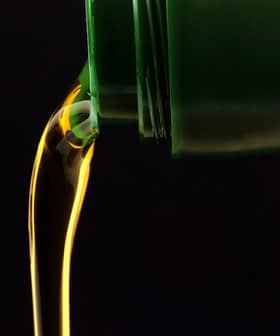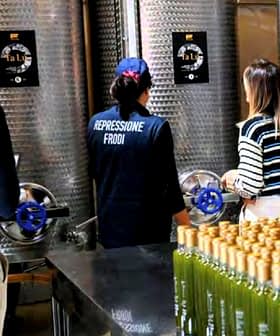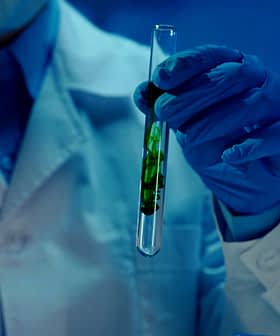Taiwan Rejects Olive Pomace Oil Imports
Taiwan has rejected imports of olive pomace oil and crude grapeseed oil from Europe due to the presence of a green colorant, causing major damage to European exporters. Despite objections from experts, the Taiwanese government continues to test all such imports for adulteration, impacting trade and potentially affecting other markets like China.

Taiwan has refused imports of olive pomace oil and crude grapeseed oil from Europe claiming they have been adulterated with a green colorant, despite objections that such testing can produce false positives.
In one of the latest twists in an edible oil scandal rocking consumer confidence in Taiwan, the Taiwanese Food and Drug Administration (TFDA) announced on Christmas Day that 8,000 kg of olive pomace oil sent by Spanish producer Vidoria SL had been ordered destroyed or returned because copper chlorophyllin had been detected in it.
And it is understood that Italian olive pomace oil and grapeseed oil has also recently been rejected for the same reason.
According to the Taiwanese press, the government is now testing all such imports in the wake of the scandal, which erupted in mid-October, has seen various companies fined, and on December 16 saw the head of a leading Taiwanese cooking oil company sentenced to 16 years jail for fraud and mislabeling.
Kao Chen-li, chairman of the Changchi Foodstuff Factory in Changhua, central Taiwan, is said to have adulterated olive oil with cheap cottonseed oil and copper chlorophyllin. The district court said in a statement that he had reaped huge benefits by doing so but even worse, had caused public unrest.
Artificial additive used in other foods but not allowed in olive oil
Recent articles in the Taiwanese press refer to artificial copper chlorophyllin, which carries the European food additive code E141, as harmful. But E141 is legally used in products including chewing gum, ice cream, parsley sauce, and green vegetables and fruits preserved in liquids.
E141i, a version which is fat soluble, is not permitted in vegetable oils and particularly not in olive oil. Its presence in olive oil always indicates adulteration.
Expert says tests not apt for olive pomace oil and grapeseed oil
However, Spanish oil expert Wenceslao Moreda has stressed in a 5‑page report dated December 10, that this is not the case for olive pomace oil and grapeseed oil, two oils in which copper chlorophylls form naturally.
“The methods developed for the detection of the addition of the colorant E141 have a limited range of application — they can be used for the detection of the said additive in all vegetable oils, including olive oil, but not olive pomace oil and grapeseed oil,” he said.
Moreda, from the highly-regarded Spanish National Research Council (CSIC) Fats and Oils Institute in Seville, and a member of expert groups advising the International Olive Council (IOC) and the European Commission, said it was therefore possible, “that the samples of pomace oil and grapeseed analyzed by the TFDA that test positive for the presence of to copper chlorophyllins, correspond to those formed naturally…and not to the addition of the colorant E141i.”
It’s understood the report was sent by the Spanish government to authorities in Taiwan but no reply has been received. Taiwanese government representatives have repeatedly said they are confident of the reliability of their testing method, which was developed on the island.
The TFDA has yet to respond to Olive Oil Times’ requests for comment.
Damage to trade
Victor Alabart, head of Vidoria, based in Reus, in southern Catalonia, said the situation was causing major damage not only to his company — for which Taiwan has accounted for 30 percent of sales — but other exporters in Europe and also the United States. While the TFDA referred to 8,000 kg, Alabart said he currently had about 400 kg of pomace oil stranded in Taiwan.
“I am defenseless in front of the government of Taiwan, which doesn’t accept all the certifications from the European Parliament and the Spanish government, French and Italian governments that its method isn’t appropriate for this because sometimes this chlorophyllin exists naturally. We haven’t added anything and chlorophyllin is perfectly fit for consumption so there is no reason to destroy it (the imported oil), Alabart said.
“The Government of Taiwan has to understand that in dozens of countries in the world these olive pomace oils and grapeseed oils are sold and without problems because the chlorophyllin results from natural processes.” “Furthermore, my pomace oil is very yellow so it’s unthinkable that I would have added copper chlorophyllin,” he said.
Fear of a flow-on in other markets, including China
An industry source in Taiwan who asked not to be named told Olive Oil Times that olive pomace oil had been popular for frying in Taiwan but was now very hard to find in shops. He said the situation could have a flow-on effect in Hong Kong and the much bigger edible oil market in mainland China.
Olive pomace oil is made from the residue left after producing virgin olive oil. Unlike the latter, it is produced not by mechanical pressing but through the use of chemical solvents (like hexane) and extremely high heat. It lacks the flavor and wide-ranging health benefits of virgin olive oils but in some markets, including in India, it is popular for its lower price and as a monounsaturated and flavorless cooking oil.
E141i is sometimes used by fraudsters to “green up” cheaper oils in order to pass them off as extra virgin olive oil.







